#based on a novel that came out 173 years ago
Explore tagged Tumblr posts
Text
finally found the screenshot of a comment thread on a long deleted youtube upload of the film adaptation of La bohème that I think about every day of my life

#CONSUMPTION!!!#also spoilers for an opera that came out 128 years ago#based on a novel that came out 173 years ago#ok to rb
68 notes
·
View notes
Text
Films you need to watch if you want to fit in at film school.
By now, you’re probably knee deep in your filmmaking course at film school or university and if you want to keep up with the film discussions in between classes, then here’s a list of exemplary films to watch (and flex on) whilst at school.
It’s never a fun moment when you’re sat in a group of other film buffs and everyone but you have seen one particular film. Not only that, but they continue to bang on about it, and in those 12 minutes you’re left wishing gosh, I wish I had watched that now.
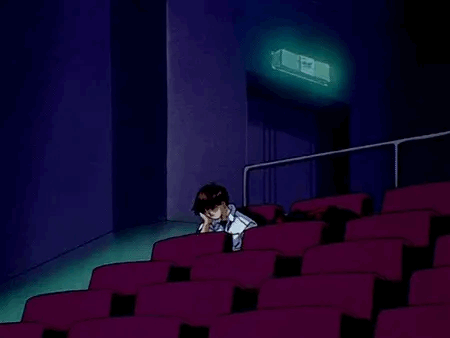
I know the feeling and to make sure you don’t get caught out again, this list of films not only covers your filmmaker wannabe basics, but also a few swarve anomalies that you can throw into the discussion like a true culture vulture.
Pulp Fiction (1994)

I shouldn’t be saying this but if you haven’t seen Pulp Fiction and you made it to film school, just leave. Hand in your student ID at reception and walk out the door, watch Pulp Fiction and come back to the next day. If you haven’t seen the 90s cult classic directed by Quentin Tarantino, it’s likely you’ve had at least one person disgusted by your lack of engagement for the film. But why is it such a necessity amongst the filmmakers of today? Well after a highly successful debut of Reservoir Dogs at Cannes Films Festival in 1992, Tarantino created another world of filmmaking. What he brought to the industry was a perspective and whole landscape that had never been seen before and the release of Pulp Fiction in 1994, certainly proved that Tarantino wasn’t a one trick pony. With a stellar cast, most of which were in their early days, and an outstanding storyline, Pulp Fiction is any filmmaker's paradise. And seriously, you can’t keep avoiding it.
Fight Club (1999)

Keeping it in the 90s, is David Fincher’s Fight Club, another revolutionary film from the king of psychological thrillers. If the name David Fincher doesn’t mean anything to you, it probably should, seeing as his films have grossed over $2.1 billion at the box office globally and earnt him 30 Academy Award nominations. Story, script and cast align perfectly in all of Fincher’s films, with Fight Club being no exception. Based on the 1996 novel by Chuck Palahnuik, Fight Club follows two men (Brad Pitt and Edward Norton, enough said) who initiate in an organised fight club. Sounds pretty straight forward until you get to the end and realise Fincher has been messing with all of us the entire time. In terms of early filmmaking and story structure, Fight Club is an excellent cult classic to sink your teeth into.
Psycho (1960)
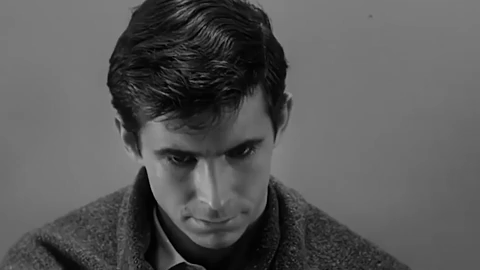
Another name to be aware of, Alfred Hitchcock laid down the foundation for thrillers for generations to come. For it’s time, Psycho was revolutionary as it broke the strict censorship and threat barriers created in the world of filmmaking in the 60s. There are some iconic scenes in Psycho, along with an unnerving score and a whopping $39.2 million profit in the box office. Hitchcock also took a gamble killing off the star of the film, Janet Leigh, 45 minutes into the film. However, Psycho just goes to show that risks can also pay off.
La Haine (1995) “The Hate”
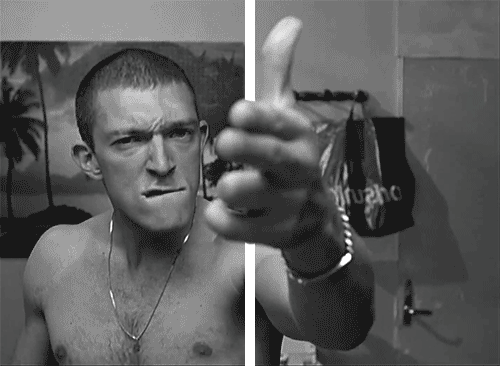
There’s a reason why some of the most revolutionary films can be found in the 90s. The 90s was the year of filmmaking that gave two fingers to the world and most of its stories belonged to the misfits and outcasts of society. Films were violent, punchy and led by young protagonists, raking in teenage audiences and voices. La Haine is a prime and clear cut example of the injustice between races and class in Paris, winning a Best Director award at Cannes in 1995. The film was so thought provoking and hard hitting, that the Prime Minister of France at the time forced his cabinet ministers to watch it. I’m sorry, if La Haine is good enough for the Prime Minister of France, it’s good enough for anyone.
Any Bong Joon Ho Film

With the success of Parasite still looming over Hollywood, Bong Joon Ho has to be the industry’s biggest underdog. Before the 2020 Oscars, most weren’t even aware of the director’s work or how gratifying he is as a storyteller. Each film is meticulously executed, with a hard hitting political message sewn beneath the surface of the overall film. Bong Joon Ho was quoted saying that this technique isn’t intentional and the breadth of the films he makes is found once they’re completed. From Okja that explores animal cruelty to Snowpiercer which explores class division, Bong Joon Ho has a way with imbedding societal issues into his films in a stylstic and structured way that should have any filmmaker filled with envy. He’s a strong voice for Asian cinema who’s had a sharp impact on western cinema without feeling the need to have all his films in the english language.
The 400 Blows (1960) “Les Quatre Cents Coups”

Whether you’re at school, in a lecture or amongst friends GUARANTEED the 400 Blows is going to worm its way into conversation at some point. The film was part of The French New Wave movement of the last 50s that created the foundation for French Cinema for films to come. The French New Wave was a significant movement that sought out to reject traditional ways of filmmaking and introduced new, more experimental ways of telling stories on screen. Francois Truffat won Best Director at the 1959 Cannes Film Festival for his directorial debut about a young boy struggling through Paris between his teachers at school and parents at home. The film shone a light on the misunderstood youth of the late 50s and early 60s, setting off a whole co-ord of films within the same genre later on.
Moonlight (2016)
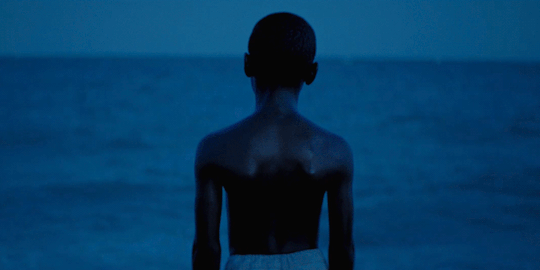
Barry Jenkins became the underdog of 2017, with his beautiful and captivating story Moonlight, following a young boy through early adolescence and adulthood. The film is impeccably shot with rich colours and seamless shots. Moonlight won big time at the 2017 Academy Awards, winning Best Picture, Best Supporting Actor and Best Original Screenplay. The film certainly set the world of filmmaking on fire and carved out space for more black filmmakers to enter into the industry.
Hereditary (2018)
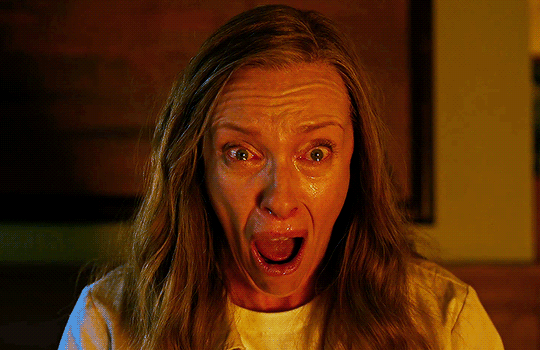
It’s easy to forget that this film was released 2 years ago as it has had some groundbreaking reception since then. Hereditary, directed by Ari Aster, sets a bar and tone within horror films that has never been touched on before. Before him, your average horrors came from low budget gimmicky films where the lead actress would be running around in her underwear by the end of the film. Hereditary keeps everyone in their clothes (for the most part) and viewers on the edge of their seats for the entirety of the film. What stands at the forefront of this film is the slow pace and artistically beautiful frames that Ari Aster has meticulously curated to create a work of art. It’s everything you wanted in a horror film but could never really ask for, due to the over saturation of the horror films on the market and predictable jump scares that come with them. I found that the jump scares in Hereditary were put in the most unpredictable places, leaving me and most people visibly shaken and disturbed.
The Grand Budapest Hotel (2014)

Probably the first PG film on this list, Wes Anderson’s most iconic film The Grand Budapest Hotel, is a production designer��s paradise. Not only that, it features an insanely good cast with the likes of Jeff Goldblum, Ralph Fiennes, Bill Murray, Saoirse Ronan, Adrien Brody, Tilda Swinton, Willem Dafoe, Harvey Keitel, Jude Law and Edward Norton starring in the film. Wes Anderson’s mind is like a fairy tale book; he has the ability to create other worlds filled with bright colours and characters that EVERY ACTOR are dying to be. The Grand Budapest is probably Anderson’s most ambitious film to date and features some production design techniques that are beyond real.
Amélie (2001)

Amélie is your basic starter pack in French Cinema. Seeing as every charity shop has at least one copy of Amélie for sale, you have zero excuse for not having seen it yet. Even if French Cinema isn’t your thing, it’s very likely the entirety of French Cinema will be a topic of interest within your filmmaking course and Amélie is a fine place to start. The film ties the story, soundtrack and visuals perfectly and for any indie filmmaker, it’s a good example of taking a simple story but executing it in a complex way. In terms of box office, Amélie scored pretty well, with a humble budget of $10 million and making over $173 million globally. It was also nominated for five Academy Awards in 2002 and remains as one of the best and most iconic films to come out of France.
Good Time (2017)
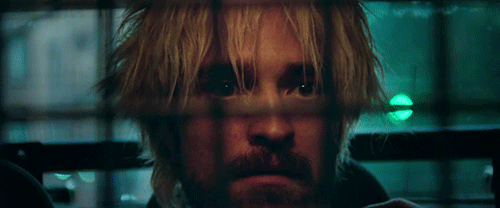
With a humble budget of $2 million, Good Time made double in the box office and had a Hollywood star at its forefront. In fact Good Time skyrocketed Robert Pattinson’s career and since it’s release, Pattinson has gone on to be part of some amazing projects. Seeing Pattinson in such a gritty role in Good Time, was highly refreshing and totally suited him in every way. New York based filmmakers, Josh and Benny Safdie co directed and wrote the crime thriller after having an impressive response from their previous film, Heaven Knows What. They recently completed Uncut Gems for Netflix starring Adam Sandler, which continued the crime thriller neon lights aesthetic that's come with their two previous films. Good Time is jaw droppingly good, and for those wanting to go into lighting, it is a must watch. The deeper the story goes, the more you feel the urge to gasp as Robert Pattinson feeds us with an unrecognisable performance.
8 ½ (1963)
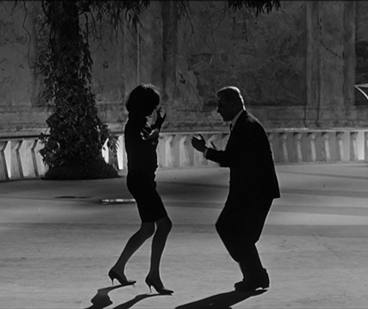
We are getting into sophisticated territory here with Fredrico Fellini’s 8 ½ . For those Scorsese and Tarantino fans out there, Fellini is your filmmaking bread and butter as both filmmakers have admitted to being heavily inspired by the Italian’s cinematic masterpieces. Fellini had the ability to tie reality with fantasy in a personal way, depicting a lot of his own life within his films. 8 ½ is no expectation, as it details the making of the actual film in the film and the rocky relationship he had with his wife, who starred in a few of his films. Fellini is named as one of the best filmmakers of all time, for his experimental style and off the wall filmmaking techniques. No one can or could do what Fellini did and there’s yet to be anyone who measures up to him.
Get Out (2017)

You like Get Out, I like Get Out, we ALL like Get Out. The film was the first of its kind in many ways and resonated with an audience that hadn’t yet been found. Jordan Peele wrote and directed the film, which grossed 100 times more than the film’s budget at the box office. This film is the epitome of less is more, taking a somewhat simple idea and heightening the possibilities of it. Jordan Peele became world renowned for it, along with British actor Daniel Kaluuya for his performance that earned him a Best Actor nomination at the 2018 Academy Awards. Get Out stands as a film that did what no one else has done before and for that, it deserves all the praise it gets.
All Celine Sciamma films
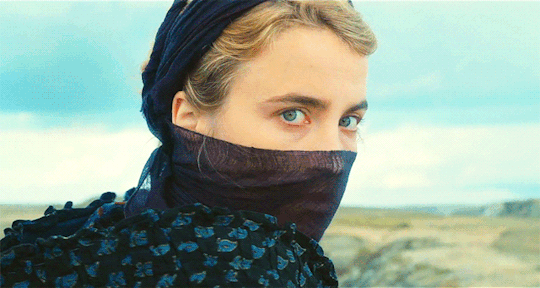
It’s likely the first time you heard of French filmmaker Celine Sciamma was from her groundbreaking, break through film Portrait of a Lady on Fire. Premiering at Cannes 2019, the film earned the Queer Palm d’Or and Best Screenplay Award. The film is simple, gorgeously shot and significantly deep in its telling. Not only will Portrait of a Lady on fire set you on fire, but all of Sciamma’s films sit on a level of filmmaking that is praise worthy. Her past films, Waterlilies and Girlhood explore coming of age stories amongst women and are executed in a highly personal and understanding way. She is the queen of female indie filmmakers and certainly one of the best french filmmakers in the industry to date.
I, Daniel Blake (2016)
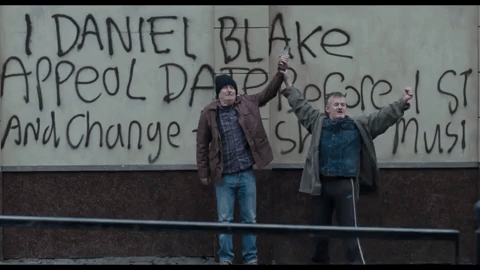
It can be hard to remove the gimmicks and big names from the stories being sold on screen and get straight to the heart of a film. Ken Loach has brought an incomparable style of filmmaking to the table that sets him apart from almost every filmmaker out there. It's easy to compare a Tarantino film to a David Fincher one, however, throw Ken Loach into the mix there's just about zero relation to either filmmaker or their styles. I, Daniel Blake won Outstanding British Film of the Year in 2017 BAFTAs and the Palm d’Or at the 2016 Cannes Film Festival. It’s no wonder why the Cannes Film Festival ate this film up seeing as the realism and grittiness of I, Daniel Blake gave a voice to a large part of society that is heavily ignored. This film leaves you nodding in agreement at the reality of the way things are even if that reality is incredibly hard to bear.
The Meyerowitz Stories (2017)

For those budding screenwriters out there, the work of Noah Baumbach is necessary in understanding three dimensional characters and the dialogue that comes with them. The Meyerowitz Stories stands from Baumbach’s other films, seeing as the screenplay and actual film are completely the same. On reading the screenplay of this film, I found not one single word of dialogue was forgotten about or changed, which is a pretty incredible achievement for any filmmaker. It certainly showed the actors (Dustin Hoffman, Ben Stiller, Adam Sandler, Emma Thompson, Adam Driver) had a lot of respect for the words on the page and each one of their performances sought to lift them off it. Baumbach’s writing style is beautifully accurate to real speech; there’s interruptions, over layered conversations and a great deal of tangents. The dialogue is like music and is only elevated by the well rounded cast.
The Master (2012)
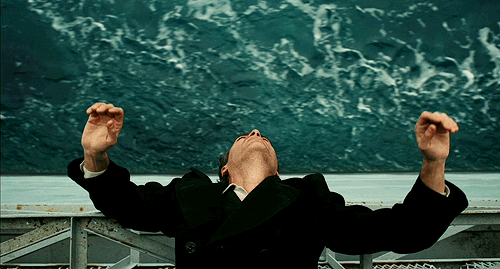
Filmmaker Paul Thomas Anderson has this hypnotic way of arresting his audiences to invest in his films for two and a half hours, then drop them at the last second. You don’t know why you’re watching or feel so absorbed in the worlds he creates, however it’s as if something over takes your attention, forcing you to carry on watching till the end. The Master is no different with a prolific cast and slow burnt pace to it. It's hard to explain what it is about this film that makes it so great. The cast made up of Phillip Seymour Hoffman, Joaquin Phoenix, Amy Adams and Jesse Plemons bring a top level performance and it feels like they’re always sitting on a secret. Every moment, every word, every shot is unmissable and the entirety of the film sets a bar of filmmaking that is flawless. Paul Thomas Anderson is a master (pardon the pun) of arresting his audiences and is someone to follow if you wish to do the same with your own films. For budding cinematographers, all of PTA’s films are worth a watch.
12 years a slave (2013)
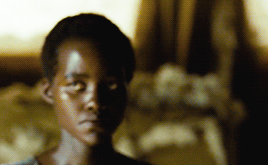
Probably the best film out there that depicts slavery, 12 years a slave is a heart wrenching and moving film directed by Steve McQueen. The sensitivity and authenticity Steve McQueen brings to his films is A class, as he does an outstanding job of really transporting his audiences to a time before. There are many scenes in 12 years a slave that can be considered some of the best ever made. The cast is in-sane with the likes of Chiwetel Ejiofor, Lupita Nyong’o, Benedict Cumberbatch, Michael Fassbender, Paul Dano, Sarah Paulson, Brad Pitt and even a young Storm Reid and Kelvin Harrison Junior, all joined within this story. Films with such casts are rare and it’s unquestionable why the film was nominated for Nine Academy Awards, winning three back in 2014.
The Social Network (2010)

Even though I wasn’t a fan of The Social Network, I can still appreciate the musicality behind the work of Aaron Sorkin and the screenplay he wrote for this. The collaboration between David Fincher and Aaron Sorkin on this film is something the world certainly needed, as two highly skilled masters of film came together and served us a huge slice of their talent. The Social Network is 100% the screenwriter’s film, and one to watch when trying to analyse successful dialogue within films.
Babel (2006)

Those who are into the episodic film, you are advised to look into the work of Alejandro G. Iñárritu. A name you might not be too familiar with, but you only need to have seen Birdman or The Revenant to appreciate his talents as a director and unique voice. Babel struck me as a poignant and INCREDIBLY structured film, with a satisfying 360 to it, as all the stories connect to one another in a distinct way. It’s so clear that a lot of time was put into writing such a screenplay and the production itself is to be noted, for scenes are filmed in Morocco, Tokyo, California and Mexico. That takes a LOT of money, time, effort and people, however if was certainly worth it as Babel is hands down one of the best films you’ll ever see.
The films of Xavier Dolan.

Xavier Dolan is Cannes Film Festival’s godson. The man has attended every festival for the past 10 years and each time, when in competition, he brings a personal and hard hitting perspective within his films. I have seen all but one of these films, and I suggest you do too. Xavier Dolan’s directorial debut I Hate My Mother scooped him numerous awards at the Cannes Film Festival and was made when Dolan was only 20. From then, he went on to direct several french/canadian films that won him the Jury Prize, Un Certain Regard and Queer Palm at Cannes. He’s a filmmaker who puts so much passion and devotion into his work, which is seen through the incredible acting, story and dialogue shown within his films. Two must see films of his would be Mommy and Laurence Anyways, especially for the acting. Xavier Dolan also directed the music video for Adele’s Hello music video which is one of the most watched music videos of all time, with 2.7 Billion views on YouTube.
You Were Never Really Here (2017)

Lynne Ramsay’s 2017 film starring Joaquin Phoenix is everything and more that you want from a thriller. It’s probably one of the best thrillers out there on the market and is highly underrated. Lynne Ramsay’s previous spellbinding feature We Need To Talk About Kevin sent pulses racing through the industry, giving Ramsay the recognition she deserves and even earning her a Palm d’Or nomination at the 2011 Cannes Film Festival. As a female filmmaker, Lynne Ramsay is one to watch for she has a knack at creating her own original slow burning, deep stories and directing them in a seamless way.
The films of Christopher Nolan
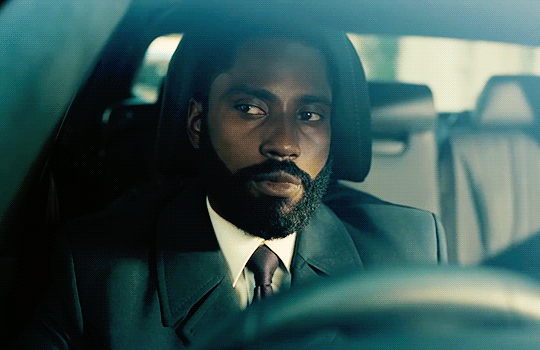
Christopher Nolan’s 11th film recently hit cinemas and no one knows what the hell is going on in it. However, there are plenty of other Christopher Nolan films that don’t melt your brain or send the guy next to you at the cinema cursing throughout the film in frustration at not understanding the film. The Dark Knight is said to have one the best performances in cinema history, with the late Heath Ledger taking on the role of the Joker. Not only that, but the likes of Gary Oldman, Michael Caine, Anne Hathaway and Christian Bale are also featured alongside Ledger, creating an untouchable cast. Dunkirk also deserves an honourable mention as one of Nolan’s films, seeing as I couldn’t breathe throughout the entire film. The second Dunkirk begins, the tension builds and you’re kept in a constant state of panic for the characters on screen. As far as war films go, Dunkirk is up there and it’s cinematic qualities were recognised at the 2018 Academy Awards, picking up three awards. What we can take from Christopher Nolan and his ability to execute stories on screen is that he spends a great deal on his screenplays before production. Tenet took FIVE YEARS to write (and probably another five to understand) certainly showing his devotion and dedication to his ideas as a filmmaker.
Honorouble mentions (that u should definitely check out)
Taxi Driver (1976) A Clockwork Orange (1971) Call me by your name (2017) Her. (2017) Do the right thing (1989)
Obviously there are 100s of other films worth watching that aren’t on this list, however if you were to watch all films mentioned on this list, you’d certainly get a different perspective on the possibilities of filmmaking and the stories they tell.
#movies#pulp fiction#fight club#psycho#david fincher#quentin tarantino#alfred hitchcock#la haine#bong joon ho#snowpiercer#okja#french new wave#the 400 blows#moonlight#barry jenkins#hereditary#the grand budapest hotel#wes anderson#amelie#french cinema#good time#robert pattinson#get out movie#jordan peele#celine sciamma#portrait of a lady on fire#waterlilies#i daniel blake#ken loach#the meyerowitz stories
111 notes
·
View notes